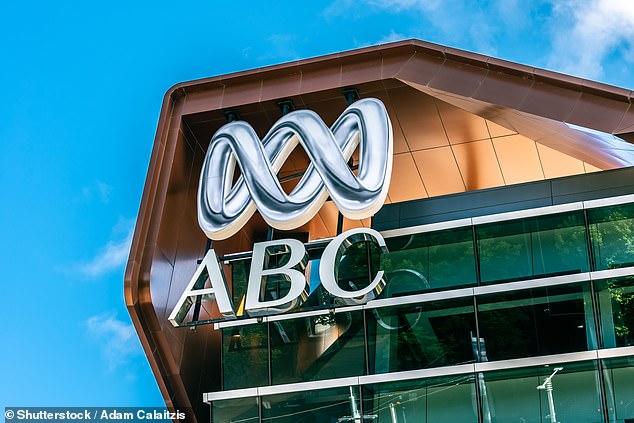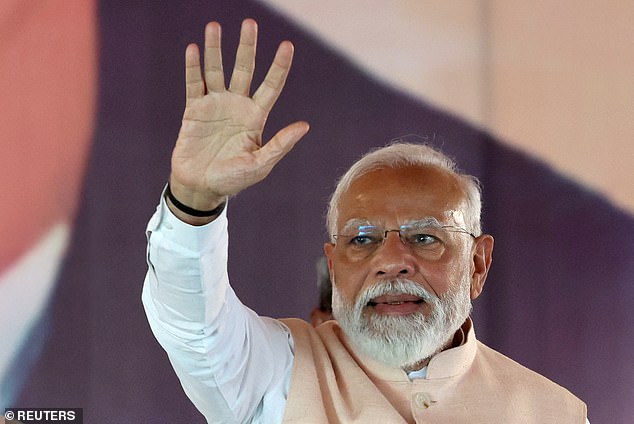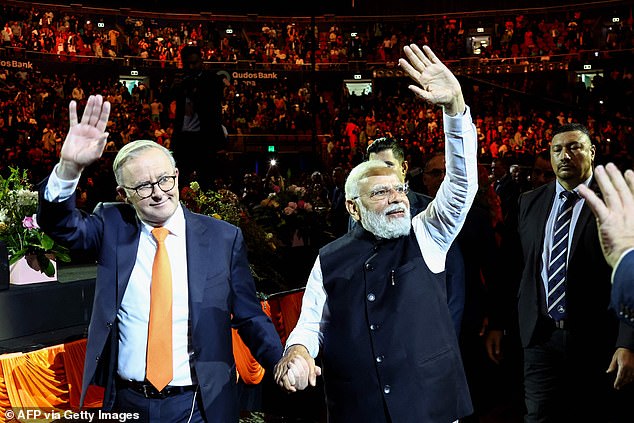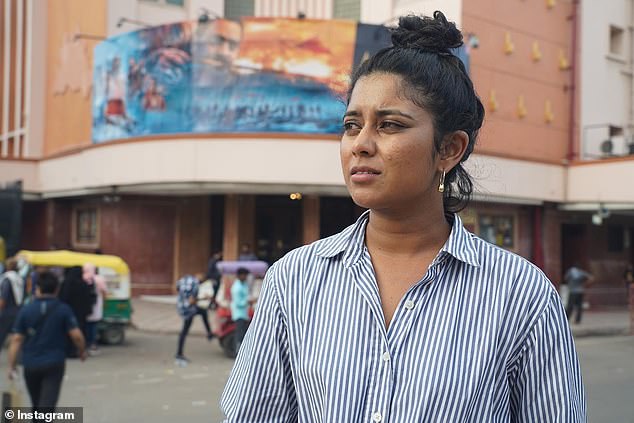An ABC journalist was “forced” to leave India after the government told her her reporting had “crossed a line”.
Avani Dias had worked as South Asia bureau chief for Australia’s national broadcaster in India since 2021, but on Tuesday claimed to have been expelled from the country for her reporting on New Delhi’s alleged involvement in the murder of a Sikh separatist leader. in Canada.
‘Last week I had to leave India abruptly. Modi Government told me they would deny me visa extension,” he tweeted, referring to Prime Minister Narendra Modi.
“After the Australian government intervened, I got an extension of just two months…less than 24 hours before my flight.”
In Indian elections that began last week but are taking six weeks due to the country’s size, Modi is seeking a record-tying third term in power.
Avani Dias (pictured) had lived in India since 2021, working as ABC’s South Asia bureau chief, but on Tuesday she said she had effectively been kicked out of the country.

Avani Dias had lived in India since 2021, working as ABC’s South Asia bureau chief, but on Tuesday she said she had effectively been kicked out of the country.
Dias said Modi’s Hindu nationalist Bharatiya Janata Party made it difficult for him to report on the election and other news.
“There is always a sense of trepidation that this kind of backlash could arise as a journalist in India,” he said in the latest episode of his Looking for Modi podcast.
‘I’ve felt it the whole time I’ve been here. So have my colleagues from different publications.’
In April, ABC’s Foreign Correspondent featured an episode conducted by Dias investigating the death of Sikh independence advocate Hardeep Singh Nijjar, whose assassination in 2023 drove a huge rift between India and Canada.
Canadian Prime Minister Justin Trudeau said there were “credible allegations” that Indian government agents were linked to the June 18 murder, which took place in the parking lot of a Sikh temple near Vancouver.
Dias said he was not surprised when a clip from his foreign correspondent show was blocked on YouTube in India.
“Now when you try to watch it on YouTube in India, it says, ‘This content is currently not available in this country due to a government order related to national security or public order,'” he said on his podcast.
The journalist said similar stories had also been “deleted” from other publications.
While waiting for his visa renewal application, Dias received a phone call from “someone from the Indian ministry.”
He claimed he was told that his “routine visa extension application was not going to be approved and that he had to leave the country in just a couple of weeks.”
“He specifically said it was because of my Sikh separatist story saying, ‘I had gone too far.’
Dias said the caller even referenced his podcast, which “felt really shocking.”

Indian Prime Minister Narendra Modi (pictured) seeks an unprecedented third term in power
‘This place that my partner and I had called home for the last two and a half years. This place that we had loved so much was no longer going to be our home and we were forced to leave it according to the Indian government’s conditions,” she said.
The Australian government lobbied on his behalf, leading to Dias getting a two-month extension just 24 hours before his flight back to Australia.
But he said the rot had already begun. “I found it too difficult to do my job in India. He was struggling to get into public events organized by Modi’s party.
“The government didn’t even give me the passes I need to cover the elections, and the ministry left everything so late that we were already packed and ready to go.”
The journalist said that the Indian authorities made things difficult for her on purpose.
“The Narendra Modi government made me feel so uncomfortable that we decided to leave.”
The ABC said Dias will continue to cover the election in what is “the world’s largest democracy” from Australia.

Prime Minister Anthony Albanese (pictured left) hugged and held hands with Indian Prime Minister Narendra Modi (pictured right).
India is Australia’s sixth largest trading partner with two-way trade in goods and services valued at $46.5 billion in 2022.
In May 2023, Modi was greeted by 20,000 fans at the Qudos Bank Arena in western Sydney.
Prime Minister Anthony Albanese, who hugged and held hands with Modi, was joined by New South Wales Premier Chris Minns to welcome the Indian prime minister to the cheering crowd.
“The last person I saw on this stage was Bruce Springsteen… and he didn’t get the welcome that Prime Minister Modi did,” Albanese said.
“Prime Minister Modi is the boss.”

